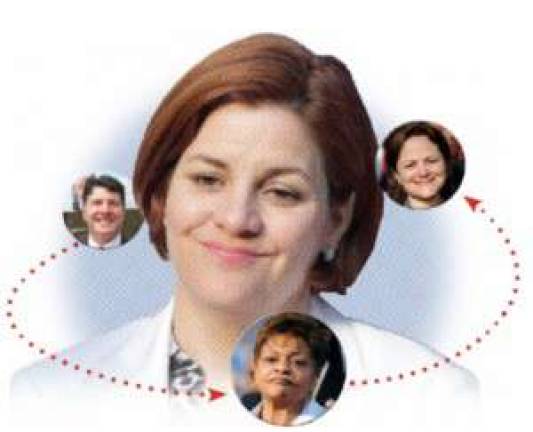Race, Ideology and County Politics at Play in Race for Next Council Speaker

Picking a New York City Council speaker used to be fairly straightforward. County leaders of the five boroughs cut deals. Jobs were promised. Votes were wrangled. Arms twisted. But a couple of new elements in the race to replace term-limited Speaker Christine Quinn in 2014, involving ideology and race, are taking things into uncharted territory. The three main candidates are thought to be Manhattan Councilwoman Inez Dickens, who is African- American and a favorite of the Harlem establishment; Manhattan Councilwoman Melissa Mark-Viverito, the Hispanic co-chair of the Progressive Caucus; and Queens Councilman Mark Weprin, who is white and favored by the famously cohesive (and influential) Queens Democratic Party. The Council's Black, Latino and Asian Caucus has grown to 27 members, making the Council majority-minority for the first time. And there's pressure for everyone involved to pick the Council's first minority speaker-especially if the mayor ends up being someone who is white like Quinn, Manhattan Borough President Scott Stringer or Public Advocate Bill de Blasio. If Quinn, the current front-runner, is elected, allies of Dickens believe she would have the speakership all but locked up. "If the mayor's white, the speaker can't be, and vice versa," said one uptown Manhattan ally of Dickens. "Assuming the mayor is white, the speaker is most likely going to be Dickens." But the situation is made more complex because of a split in the Black, Latino and Asian Caucus between the establishment (which makes up the majority of the caucus, and supports Dickens) and members of the Progressive Caucus (which supports Mark- Viverito). Already tensions flared within the caucus earlier this year, when Mark- Viverito pulled out of a race for a leadership spot in the Black, Latino and Asian Caucus because she lacked support for reelection. Even though Dickens holds the majority of support in the Black, Latino and Asian Caucus, that bloc would still have to cut a deal with the leadership of at least one of the borough delegations. Meanwhile, the Council's 12-member Progressive Caucus is looking to expand its ranks dramatically in the next election. With nearly half the Council set to be open seats, the Working Families Party is hoping to make a play in some 20 Democratic primaries, already identifying candidates to support. In low turnout Democratic primaries, the WFP proved extremely formidable in 2009 against the Queens Democratic Party, though the WFP's ground operation may be weakened by the demise of its for-profit campaign arm, Data and Field Services. One top progressive labor official involved with WFP strategy said the Progressive Caucus was considering teaming up with a county leader-like Brooklyn chair Vito Lopez or Bronx leader Carl Heastie-to be able to win a majority of votes on the Council for the speakership. To read the rest of this City and State article click here.